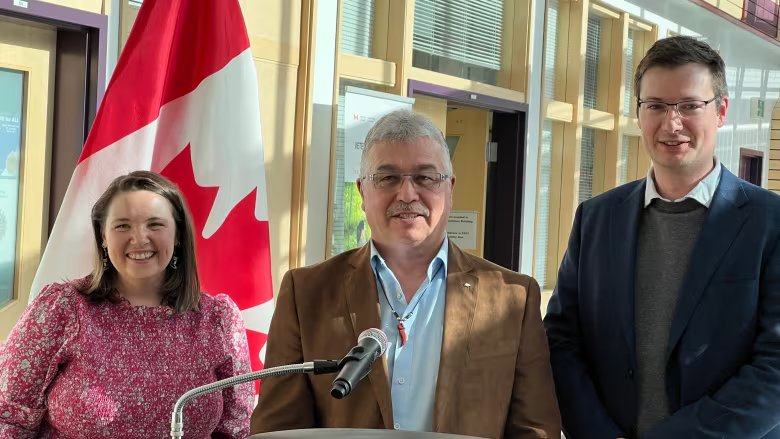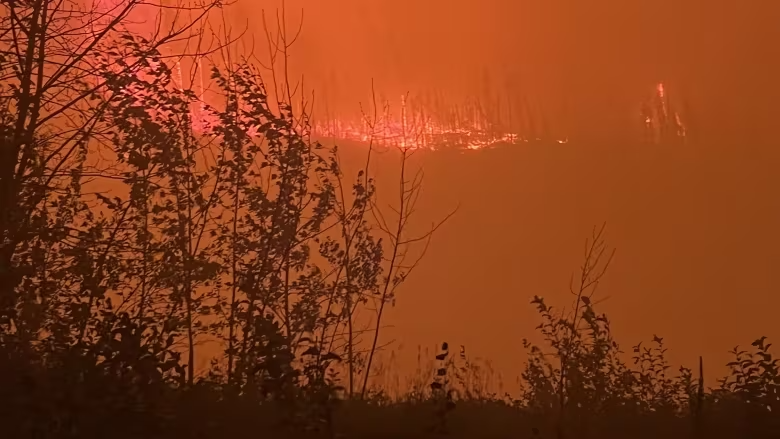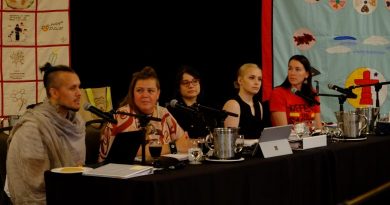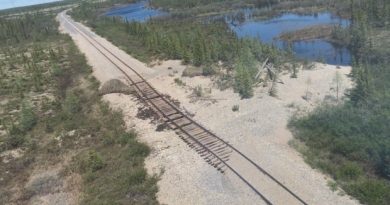N.W.T. Indigenous governments get $15M to deal with 2023 wildfires’ impact

The federal government is giving money to 27 Indigenous governments and organizations in the N.W.T. to help deal with the impacts of last year’s wildfire season.
Indigenous governments and organizations had to use their own funding to help provide support for their communities because of evacuations last year.
The federal funding announced Tuesday is meant to reimburse the costs for things like accommodations, flights and cultural support. They could also include food and locating members from Indigenous communities and bringing them back to the territory.
“I think we’re all aware that wildfires have been front and center for the last while and certainly they are a brutal reminder of the effects of climate change, especially here in the North and in our Indigenous communities,” said N.W.T. MP Michael McLeod, speaking on behalf of Dan Vandal, the federal minister of Northern Affairs.
All of the Indigenous government and community organizations have received their portion of the funding.
Indigenous governments, organizations and communities could apply for up to $100,000. If they needed more funding, they had to outline their specific needs in a proposal to Crown-Indigenous Relations and Northern Affairs Canada.
Some of the higher amounts of funding given out include around $1 million to the Yellowknives Dene First Nation and around $5 million to the Tłı̨chǫ government.
The federal funding is a one-time payment meant to help cover costs that aren’t covered under the Disaster Financial Assistance Arrangement and the Emergency Management Assistance program.

“There was a concern that some of these Indigenous governments would have been facing some really tough financial cash flow situations if we didn’t step in,” McLeod said.
McLeod said Vandal will also be working with Indigenous partners, territories and other federal agencies to develop long-term strategies to address culturally appropriate emergency management service gaps in the North.
The 2023 wildfire season displaced 70 percent of the N.W.T. population from their homes. Between May and October last year, the wildfires burned over 4.1 million hectares across the territory.
Related stories from around the North:
Canada: Yukon government to review this summer’s wildfire evacuations in Mayo, Old Crow, CBC News
Norway: Smoke from Canadian wildfires forecast to reach Norway, The Associated Press
Russia: New NOAA report finds vast Siberian wildfires linked to Arctic warming, The Associated Press
Sweden: High risk of wildfires in many parts of Sweden, including North, Radio Sweden
United States: Wildfires in Anchorage? Climate change sparks disaster fears, The Associated Press



